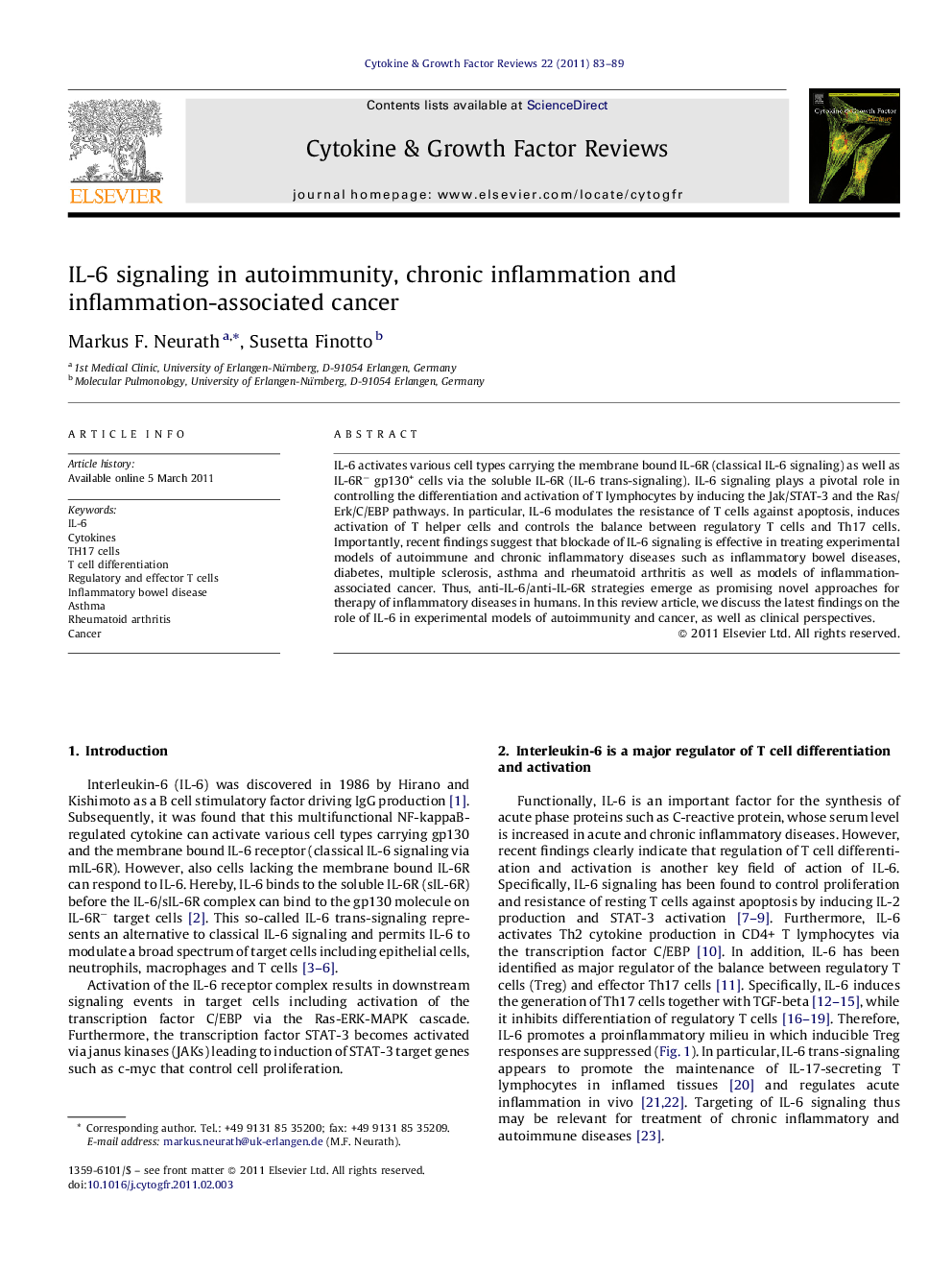| Article ID | Journal | Published Year | Pages | File Type |
|---|---|---|---|---|
| 2170649 | Cytokine & Growth Factor Reviews | 2011 | 7 Pages |
IL-6 activates various cell types carrying the membrane bound IL-6R (classical IL-6 signaling) as well as IL-6R− gp130+ cells via the soluble IL-6R (IL-6 trans-signaling). IL-6 signaling plays a pivotal role in controlling the differentiation and activation of T lymphocytes by inducing the Jak/STAT-3 and the Ras/Erk/C/EBP pathways. In particular, IL-6 modulates the resistance of T cells against apoptosis, induces activation of T helper cells and controls the balance between regulatory T cells and Th17 cells. Importantly, recent findings suggest that blockade of IL-6 signaling is effective in treating experimental models of autoimmune and chronic inflammatory diseases such as inflammatory bowel diseases, diabetes, multiple sclerosis, asthma and rheumatoid arthritis as well as models of inflammation-associated cancer. Thus, anti-IL-6/anti-IL-6R strategies emerge as promising novel approaches for therapy of inflammatory diseases in humans. In this review article, we discuss the latest findings on the role of IL-6 in experimental models of autoimmunity and cancer, as well as clinical perspectives.
